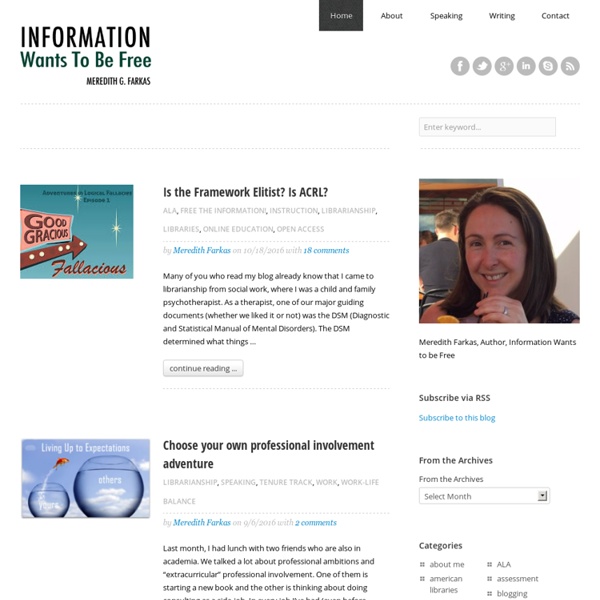



A Chair, A Fireplace & A Tea Cozy How LIANZA is working to 'Strengthen the Profession' Posted by: Megan Button | Posted on: 30 Jul 13 BackgroundIn 2011 LIANZA Council committed to a goal of Strengthening the Profession in its strategic plan. This goal evolved from a paper presented to Council in 2009 around Marketing the Profession. The paper was later revisited and Council decided that a new approach should be to build a stronger profession, rather than marketing the profession. ‘Strengthening the Profession’ became the strategic goal and in 2012 three working groups were established; #brandlibraries; Emerging Leaders and Future Skills Feedback from the membership indicates that you would like to hear more about what is going on behind the scenes so here is an update on these key LIANZA projects. #brandlibrariesWorking Group: Chair: Vye Perrone (Waikato University), Alison Wallbutton (Massey University), Amanda Jane McFadden (Tauranga Public), Sandy Green (Masterton Public) Work so far by the group has been to: Key areas include: Work is also underway to develop the following:
Library Voice Swiss Army Librarian Brian Herzog 5 Keys to Inspiring Leadership, No Matter Your Style Forget the stereotypical leadership image of a buttoned-up person in a gray suit hauling around a hefty briefcase. Today, standout leaders come in all shapes and sizes. She could be a blue jeans-clad marketing student, running a major ecommerce company out of her dorm room. "Our research indicates that what really matters is that leaders are able to create enthusiasm, empower their people, instill confidence and be inspiring to the people around them," says Peter Handal, chief executive of New York City-based Dale Carnegie Training, a leadership-training company. That's a tall order. 1. Great leaders are brave enough to face up to challenging situations and deal with them honestly. "The gossip at the coffee machine is usually 10 times worse than reality," Handal says. 2. Employees are more loyal and enthusiastic when they work in an environment run by people they trust. When employees, vendors or others make mistakes, don't reprimand or correct them in anger. 3. 4. 5. The 5 Keys Series
librarian.net Social Networking Librarian Content Performance Issues? These are the Remedies Superpatron - Edward Vielmetti is Mobilizing the Friends of the Here's a compilation of "ask a librarian" services in 12 of 50 states, and as many countries as I could find. Whenever possible, these will have a (verified) note by them, signifying that I was able to ask and receive an answer to a reference question. This is a work in progress. United States. Library of Congress Ask A Librarian (Library of Congress). Organized by reading room; several have chat based help available, others are via email or phone. Alabama. Alabama. Alaska. Arizona. Arizona. Arizona. Arkansas. California. Colorado. Connecticut. Delaware. Florida. Georgia. Hawaii. Idaho. Illinois. Indiana. Iowa. Kansas. Michigan. Michigan. Ohio. Oregon. Washington. Thanks to Julie Weatherbee, Michelle G, Lou Rosenfeld, Eli Neiburger, John Blyberg, Peter Morville, Jessamyn West, Billy Barron, Sam, Caleb and many others for help in putting this list together. Telephone numbers will be marked up as specified in RFC 3966, if I can manage it.
Dewey's Not Dead The One Thing Successful People Never Do findability.org - by Peter Morville